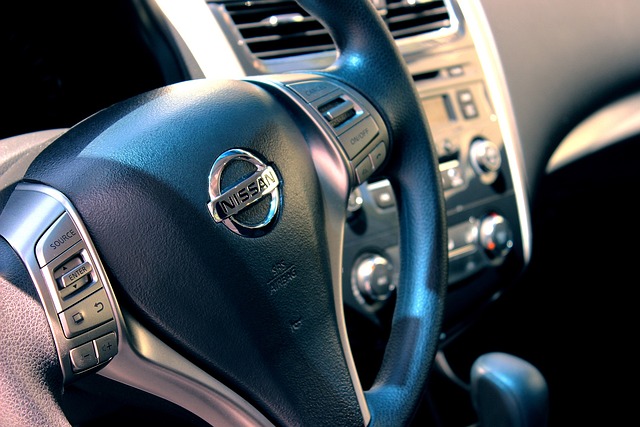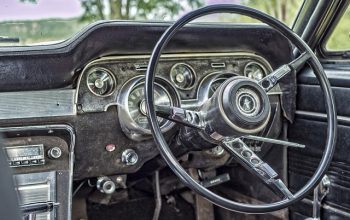The salvage title market offers an opportunity for buyers to acquire damaged vehicles at reduced prices, with the potential to restore them to roadworthy condition. These vehicles, often totaled due to accidents or natural disasters like floods, are sold at salvage car auctions, where they can be purchased with a salvage title, which indicates the vehicle has been involved in significant damage and requires substantial repairs. If restored according to state safety standards, these vehicles can obtain a rebuilt title. It's crucial for buyers to conduct thorough research, including VIN checks and detailed vehicle history reports, to understand the car's background and previous damages. Due diligence is necessary to ensure that the vehicle isn't beyond repair and to comply with state-specific laws regarding salvage and rebuilt titles. Restoration involves rigorous inspections and potentially extensive repairs using OEM parts, after which the vehicle must pass an authorized inspection to be reclassified with a rebuilt title. This process can result in a cost-effective and rewarding restoration project, provided one has the knowledge and legal awareness to navigate the market successfully.
Exploring the salvage title market can be a cost-effective and fulfilling endeavor for car enthusiasts and DIY mechanics. For those intrigued by the challenge of collision repair or vehicle restoration, salvage vehicles—ranging from totaled cars to flood-damaged vehicles—present an opportunity to own a vehicle at a fraction of its original cost. However, purchasing a vehicle branded as salvage or rebuilt requires due diligence: VIN checks, thorough vehicle history reports, and a solid understanding of title branding are paramount. This article will guide you through the nuances of the salvage title market, from identifying repairable vehicles at salvage car auctions to successfully restoring a flood-damaged vehicle. Navigate the process with insights into the legalities and lingo associated with rebuilt titles, and learn how to distinguish between wrecked cars that are truly repairable gems. With careful planning and adherence to local laws, turning a salvage vehicle into a reliable ride or a showstopping restoration project is not only possible but can also be a smart financial move.
- Navigating the Salvage Title Market: Understanding Your Options
- Assessing Salvage and Rebuilt Titles: The Legalities and Lingo
- Identifying Repairable Vehicles at Salvage Car Auctions: A Guide to Spotting Gems Among Wrecked Cars
- The Art of Restoring a Flood-Damaged Vehicle: Tips for Successful Collision Repair and Rebuilding
Navigating the Salvage Title Market: Understanding Your Options
When venturing into the salvage title market, it’s crucial to familiarize yourself with the types of vehicles available and the terminology used. A ‘salvage title’ indicates a vehicle that has been damaged in an accident or declared a total loss by an insurance company. These titles often come with a lower price tag but may require significant repair work. On the other hand, a ‘rebuilt title’ signifies that a salvaged vehicle has been restored to a drivable state and passed a state inspection. Both types of vehicles can be found at salvage car auctions, which are prime sources for those looking to invest in a totaled car or a wrecked vehicle with the potential for transformation. These auctions provide a platform to bid on damaged cars, including those that have suffered from natural disasters like floods, which can lead to finding a repairable vehicle at a fraction of its original cost. However, before making a purchase, it’s imperative to conduct thorough research and inspections. This includes obtaining a VIN check to understand the vehicle’s history and any previous damage. Additionally, one must be aware of the specific laws governing salvage and rebuilt titles in their state, as these can vary widely. By understanding your options and adhering to legal requirements, you can navigate the salvage title market successfully and potentially acquire a damaged car that holds great value both financially and as a restoration project.
Assessing Salvage and Rebuilt Titles: The Legalities and Lingo
When venturing into the market for a salvage or rebuilt vehicle, it’s crucial to familiarize oneself with the legalities and terminology involved. A ‘Salvage Title’ is issued to vehicles that have been damaged to an extent where the cost of repairs exceeds a certain percentage of the car’s value, as determined by state laws. These titles are often assigned after a vehicle has been deemed a total loss by insurance companies following accidents, natural disasters, or flood damage. On the other hand, a ‘Rebuilt Title’ is issued to vehicles that have undergone reconstruction and have met the necessary regulatory standards to be deemed safe and roadworthy again. The journey from a Salvage Title to a Rebuilt Title involves thorough inspection and often extensive restoration work on what was once a Totaled Car or Damaged Car.
Potential buyers should engage in due diligence by conducting a VIN (Vehicle Identification Number) check and procuring a vehicle history report. These reports will reveal the car’s past, including any accidents, damage, or title branding that may affect its safety and value. It’s imperative to understand that Flood-Damaged Vehicles can pose significant risks if not restored correctly, as water intrusion can compromise the integrity of vital components like electrical systems and engine parts. Moreover, laws regarding Salvage Car Auctions vary by state, so one must be aware of these regulations to ensure compliance. By carefully assessing the vehicle’s condition and history, and by adhering to the legal framework surrounding Salvage Titles and Rebuilt Titles, buyers can navigate this unique market with confidence, potentially acquiring a Repairable Vehicle that becomes a source of pride and satisfaction upon completion of its restoration.
Identifying Repairable Vehicles at Salvage Car Auctions: A Guide to Spotting Gems Among Wrecked Cars
When venturing into salvage car auctions to find a repairable vehicle, it’s crucial to sift through the array of damaged cars to identify those with potential. A salvage title often accompanies vehicles that have been declared a total loss by insurance companies due to extensive damage from accidents, natural disasters like floods, or other significant events. These vehicles can be reacquired for a fraction of their original value, offering a unique opportunity for enthusiasts looking for a project car or those seeking cost-effective transportation. To discern which salvage vehicle is worth your time and investment, start by examining the salvage title history and obtaining a vehicle history report. This due diligence will provide insights into the vehicle’s past, including any previous damage, the nature of the title branding, and the extent of repairs made. A rebuilt title indicates that the car has been repaired to the point where it can be registered and driven again, but only in certain states. It’s essential to understand the legal implications of a rebuilt title within your jurisdiction, as requirements vary by state.
At the salvage car auction, focus on vehicles with a known history of being flood-damaged or involved in collisions that didn’t total the car. These are more likely to be repairable and not require an extensive overhaul. Inspect the vehicle thoroughly, checking for signs of structural integrity issues, rust, or water damage that could signal a more significant problem beneath the surface. Additionally, ensure that all salvage vehicles you consider have had their odometer readings reported; a gap in reporting can be a red flag. By conducting a meticulous assessment and understanding the nuances of salvage title and rebuilt title vehicles, you can navigate the salvage car auction landscape to find a repairable vehicle gem among the wrecked cars. With careful selection and the right approach, you can transform a salvaged vehicle into a reliable and satisfying ride, all while potentially saving a great deal of money in the process.
The Art of Restoring a Flood-Damaged Vehicle: Tips for Successful Collision Repair and Rebuilding
When embarking on the journey to restore a flood-damaged vehicle, patience and meticulous attention to detail are paramount. The process begins with sourcing a salvage title car from a reputable salvage car auction. These platforms often list vehicles that have been deemed repairable after being totaled due to various reasons, including water damage. Upon acquisition, the first step is to conduct a thorough inspection, focusing on areas that are most susceptible to flood damage—electrical systems, interiors, and engine components. It’s crucial to verify that all affected parts are replaced or professionally restored; failure to address issues thoroughly can lead to future complications.
The next critical phase involves obtaining the appropriate documentation. A salvage title vehicle will transition to a rebuilt title upon successful restoration, provided it adheres to the state’s regulations. This process is not merely about legal transfer of ownership; it’s an assurance that the vehicle has been properly inspected and meets safety standards. The rebuilt title signifies that the vehicle is roadworthy once more, having undergone a transformation from a wrecked vehicle to a functional, reliable mode of transportation. Throughout the repair process, utilizing OEM (Original Equipment Manufacturer) parts is recommended to maintain the integrity of the vehicle’s performance and longevity. After the repairs are completed, the vehicle must be inspected by an authorized entity to ensure it aligns with safety protocols before being granted a rebuilt title. This meticulous process ensures that the vehicle is ready to hit the road again, providing a sense of accomplishment and a potentially cost-effective alternative to purchasing new or used cars without the history of a salvage title.
When considering the acquisition of a vehicle with a salvage title, it’s clear that with due diligence and a commitment to careful restoration, these often overlooked gems can be transformed into reliable and functional vehicles. The process of purchasing a salvage car from auctions can be both cost-effective and rewarding for enthusiasts and hobbyists alike. By understanding the legal framework surrounding rebuilt titles, assessing the true salvage value of the vehicle, and conducting thorough inspections, buyers can navigate this unique market confidently. The key to success lies in leveraging resources such as VIN checks and comprehensive vehicle history reports to ensure transparency and compliance with local laws. For those with a passion for automotive restoration, a salvage title car represents an opportunity to breathe new life into a damaged or flood-damaged vehicle. Embracing the challenge of turning a totaled or repairable vehicle into a roadworthy asset can be not only financially beneficial but also a deeply satisfying endeavor. With the right approach and a meticulous rebuild process, these vehicles can become a testament to one’s skills and dedication, making the investment in a salvage title car a commendable choice for enthusiasts in the market for their next project.



